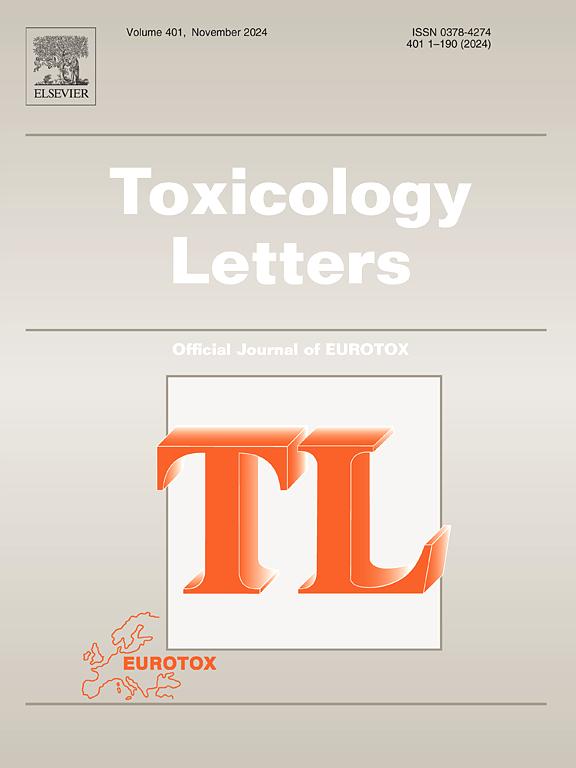审查聚烯烃管道中紫外线稳定剂降解形成的饮用水污染物 "阿尔文化合物 "的遗传毒性。
IF 2.9
3区 医学
Q2 TOXICOLOGY
引用次数: 0
摘要
饮用水输配系统中使用的聚烯烃管道需要一些功能添加剂,以确保其稳定性和耐用性。其中一些添加剂和/或其降解产物可能会从管道中迁移到饮用水中。此前,已在饮用水中发现了一些支链烷基酚降解剂;这些物质被称为 "阿尔文物质",编号为阿尔文 1 至 10。由于潜在的基因毒性是人类健康安全的一个关注点,我们根据现有的体外和体内综合数据,对阿尔文物质的基因毒性进行了审查。在十种阿尔文物质中,有九种物质的基因毒性研究结果涉及诱变性和致畸性。在细菌诱变性研究中,这九种阿尔文物质始终呈阴性。在致畸性试验中得到的结果各不相同,支链烷基酚 Arvin 1、2 和 4 诱导了一些阳性反应,通常伴有显著的细胞毒性。不过,在后续测试中,Arvin 1、2 和 4 没有诱发体内微核或遗传毒性。其他 Arvin 化合物在体外也没有显示出基因毒性。总之,在人类健康风险特征方面,根据现有数据,Arvin 复合物不被认为是基因毒性物质。本文章由计算机程序翻译,如有差异,请以英文原文为准。
Review of the genotoxicity of “Arvin compounds”, drinking water contaminants formed by the degradation of antoxidants in polyolefin pipes
Polyolefin pipes used in drinking water distribution systems require a number of functional additives to ensure stability and durability. Some of these additives and/or their degradation products may migrate from the pipes into the drinking water. Previously, a number of branched chain alkylphenol degradants have been identified in drinking water; these were termed “Arvin substances” and numbered Arvin 1–10. As potential genotoxicity is a human health safety concern, the genotoxicity of Arvin substances is reviewed based on comprehensive in vitro and in vivo data available. Results obtained from genotoxicity studies addressing mutagenicity and clastogenicity are available for nine of the ten Arvin substances. These nine Arvin substances were consistently negative in bacterial mutagenicity studies. Divergent results were obtained in clastogenicity assays with some positive responses induced by the branched chain alkylphenols Arvin 1, 2, and 4, often accompanied by significant cytotoxicity. However, Arvin 1, 2, and 4 did not induce micronuclei or genotoxicity in vivo during follow-up testing. The other Arvin compounds did not show genotoxic activity in vitro. In conclusion, regarding human health risk characterization, the Arvin compounds are not considered genotoxic agents based on the available data.
求助全文
通过发布文献求助,成功后即可免费获取论文全文。
去求助
来源期刊

Toxicology letters
医学-毒理学
CiteScore
7.10
自引率
2.90%
发文量
897
审稿时长
33 days
期刊介绍:
An international journal for the rapid publication of novel reports on a range of aspects of toxicology, especially mechanisms of toxicity.
 求助内容:
求助内容: 应助结果提醒方式:
应助结果提醒方式:


